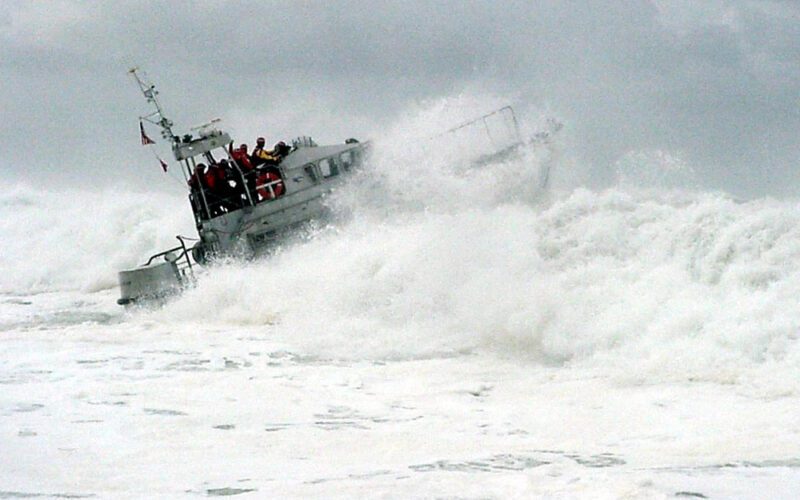
Due to recent strong winds through coastal waters and high surf conditions with large breakers that have created hazardous conditions, the U.S. Coast Guard recently urged mariners and members of the public in the Pacific Northwest to take precautions to ensure their safety.
The Guard’s safety tips for mariners and the public include:
- Stay informed: Stay updated with the latest weather forecasts and advisories. Monitor National Weather Service forecasts for Washington and Oregon.
- Monitor port restrictions and bar reports by visiting weather.gov.
- Secure boats: Owners should ensure their vessels are properly secured or relocated to a safe location. Double-check mooring lines, anchorages and dock cleats to prevent damage or loss of boats.
- Stay away from the shore: Avoid going near beaches, cliffs and other shoreline areas during the storm. Dangerous sneaker waves, rip currents and high winds can create hazardous conditions.
- If you can’t evade a storm, wear a life jacket and know how to activate your distress signaling devices, including a VHF FM radio.
- If you’re in an emergency and in need of Coast Guard assistance, use VHF-FM radio, channel 16 or dial 911.
- If you’re in a vessel and see signs of bad weather, seek shelter. While en route to shelter, tie down loose objects on the boat and prepare passengers for possible rough water, heavy rains and high winds. Have all aboard put on life jackets, including pets. Don’t let passengers below deck remove their life jackets.
- If you get into trouble, call for help immediately. Ideally, you should have an EPIRB on board and a VHF marine radio. Keep in touch with the Coast Guard or anyone you can reach so someone knows your location and assistance can be sent if needed and when possible.
- Carry life rafts on board large vessels. If the boat sinks, board the life raft, stay with it and tether passengers together. Keep moving slowly to keep circulation and body temperature up and avoid overexertion.
People in distress can also call one of the Coast Guard’s command centers: Columbia River at (833) 769-8724 or Puget Sound at (206) 217-6001. The Coast Guard recommends saving the numbers before going out to sea and also has said that social media should not be used to report life-threatening distress due to limited resources to monitor social media platforms.

